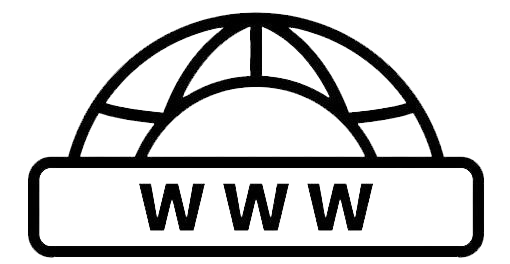Modified Date:January 30, 2025
In the vast world of search engine optimization (SEO), understanding the concept of “crawl budget” can significantly impact your website’s performance. For those aiming to achieve effective SEO management, mastering this element is crucial. This article delves into what crawl budget is, why it matters for SEO, and how you can optimize it for better search engine visibility.
What is the Crawl Budget?
Crawl budget refers to the number of pages a search engine bot, such as Googlebot, will crawl on your website within a specific timeframe. It’s essentially the allocation of resources that a search engine dedicates to discovering and indexing your web pages. This concept is vital because search engines can’t crawl all the pages on the internet simultaneously. Instead, they allocate a certain amount of time and resources to each site based on various factors.
Why Does Crawl Budget Matter for SEO?
Understanding crawl budget is essential for several reasons:
- Efficiency in Indexing: If search engines are efficiently crawling and indexing your pages, your content has a better chance of appearing in search results. An optimized crawl budget ensures that your most valuable pages get the attention they deserve.
- Improved Rankings: Properly managing crawl budget can lead to better search engine rankings. By directing crawl resources to your most important pages, you enhance their chances of ranking higher in search results.
- Reduced Server Load: By managing your crawl budget effectively, you can minimize the strain on your server. This is particularly important for large websites or those with limited server resources.
- Avoiding Crawl Waste: Crawl budget management helps prevent search engines from wasting resources on duplicate, low-quality, or irrelevant pages.
Factors Influencing Crawl Budget
Several factors affect how search engines allocate crawl budget to your site:
- Site Authority: Higher authority sites with more backlinks and user engagement tend to get more frequent and thorough crawls.
- Site Structure: A well-organized site with clear navigation allows search engines to crawl efficiently, making better use of your crawl budget.
- Page Quality: High-quality, unique content encourages more frequent crawling. Conversely, thin or duplicate content may lead to wasted crawl budgets.
- Update Frequency: Sites that are updated frequently tend to get crawled more often, as search engines are interested in fresh content.
- Server Performance: Fast, reliable servers ensure that search engine bots can crawl your site efficiently without encountering errors.
How to Optimize Crawl Budget
- Identify and Fix Crawl Errors: Regularly check Google Search Console or other SEO tools for crawl errors. Fixing these errors ensures that search engines can access and index your pages correctly. Common errors include broken links, 404 pages, and server errors.
- Improve Site Structure and Navigation: A logical site structure with clear internal linking helps search engines navigate your site more efficiently. Use a sitemap to guide bots to important pages and ensure that your site’s navigation is user-friendly.
- Prioritize High-Quality Content: Focus on creating high-quality, relevant content that provides value to your audience. Ensure that your most important pages are well-optimized and free of duplicate content.
- Manage Duplicate Content: Use canonical tags to indicate the preferred version of duplicate or similar pages. This prevents search engines from wasting crawl budgets on duplicate content and helps consolidate ranking signals.
- Optimize Your Robots.txt File: Use the robots.txt file to control which pages search engines can or cannot crawl. This can help direct crawl budgets away from low-value pages or sections of your site that do not need to be indexed.
- Use Noindex Tags Wisely: For pages that you don’t want to be indexed (e.g., thank-you pages, login pages), use the “noindex” meta tag. This prevents these pages from consuming crawl budget and helps focus search engine resources on more important content.
- Monitor Crawl Activity: Keep an eye on your crawl stats in Google Search Console. This data can provide insights into how search engines are crawling your site and help you identify areas for improvement.
Case Study: Effective Crawl Budget Management
To illustrate the impact of effective crawl budget management, consider a case study of a large e-commerce website. Initially, the site experienced slow growth in organic traffic despite having a substantial number of pages. After conducting a thorough audit, the site’s SEO team discovered several issues:
- A significant number of low-quality, duplicate product pages were consuming crawl budgets.
- The site had numerous broken links and crawl errors.
- The site’s internal linking structure was inefficient, leading to important pages being buried deep in the site hierarchy.
By addressing these issues, the team took the following steps:
- Consolidated Duplicate Content: Duplicate product pages were merged, and canonical tags were added to similar pages to prevent crawl budget waste.
- Fixed Crawl Errors: Broken links and server errors were resolved to ensure smooth crawling.
- Enhanced Internal Linking: The internal linking structure was improved, making key pages more accessible to search engine bots.
- Streamlined Sitemap: The sitemap was updated to focus on high-priority pages.
As a result of these changes, the site saw a significant increase in organic traffic and improved rankings for its key product pages. This case demonstrates how effective crawl budget management can lead to tangible SEO benefits.
Conclusion
Understanding and managing crawl budgets is a crucial aspect of effective SEO management. By optimizing how search engines crawl and index your site, you can improve your site’s visibility, rankings, and overall performance. Regularly monitor crawl activity, prioritize high-quality content, and address technical issues to make the most of your crawl budget. With these strategies, you can ensure that your website remains competitive in the ever-evolving landscape of search engine optimization.

